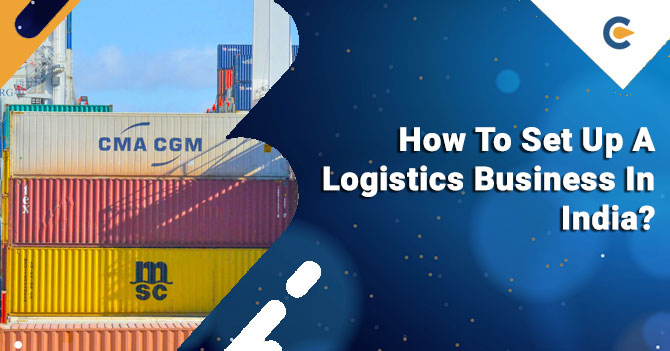The Indian economy has witnessed sharp growth in the past few years. This has also widened the market landscape for logistic services. More than 50 million job seekers have already found their way to this sector. This 200 billion dollar industry is a one-stop destination for startups who intent to jump into a profitable venture. This write-up will render a solid blueprint for establishing a profitable logistic business in India.
How promising is the logistic sector for start-ups?
Underpinned by a technology-driven transformation, the logistics sector has emerged as a prominent contributor to the nation’s economy. The logistic sector is estimated to be a $200-billion industry and its overall contribution to India’s GDP stood at 14%.
The post-Covid era has escalated the growth of this sector while speeding up the digital transformation across the logistics chain. According to NSDC’s assessment, logistics has managed to secure a prominent ranking among the top employment generating sectors in the post-COVID phase in India.
Surprisingly, the pandemic and its repercussion have transformed this sector from a supporting service sector into an imperative one. With the widespread reach of e-commerce portals and web-based businesses, the demand for logistics services has witnessed a steep rise over the past year.
This has ensured widespread adoption of automatic, digitization, and best practices for the logistics space. Considering the current trend, it seems that the logistic business is a winning venture for start-ups.
Read our article:Know the Complete Rundown of Documents Required For Startup India Registration
Blueprint for Establishing a Sustainable Logistics Business in India
Choose an Apt business model
Based on your investment capabilities and growth aspiration, you need to decide which business model would be best for you. Currently, logistic services excel on one of the two different models, namely- autonomous and franchise. Both forms have their pros and cons.
The former business[1] model works great for start-ups that have ample capital at disposal and can foster innovation.
Meanwhile, the latter one is suitable for those who are scared of initial fiscal shock and lack required capital.
It’s important to pinpoint the specific role in the supply chain. For instance, you could have a logistics and transport facility or have a barcode printing and packaging facility as well. Now, it is up to you to decide whether you possess the ability to manage warehousing in addition to barcode printing or if it is good to render limited services with end-to-end efficiency.
Outline a viable business plan
To do so, examine the marketplace to get clarity on what it takes to establish a venture from scratch. This way you can create a solid business plan, which would be your next step.
As a part of the research, prepare a listicle of legal and fiscal prerequisites related to this business model.
Next, dig deeper into your rivals to know what area they serve and what their offerings are.
Pinpoint business opportunities in the existing market
Once you are ready with your business model and scope of operation, club your team and brainstorm to generate unique business ideas that will turn the table for you. Outranking your rivals should be a priority and to do so you need to create a USP for your business.
Identify the legalities
Identification of end-to-end legalities is imperative for any business, including logistic services. Depending on the chosen business model, your venture shall be recognized as a partnership, LLP, or private limited company.
Furthermore, you will need to secure specific licenses that are meant to regulate the nature of business activities.
Moreover, you can also opt for trademark registration in case you are concerned about your IP assets.
Pinpoint assets & software for running your business
Your investment will increase as you opt for more strategic models like 4pl and 5pl. These models seek significant investment and qualified teams for better management. In case you are not willing to make a considerable investment then steak with basic logistic models, like 2pl and 3pl, and divert your entire focus on one particular service.
Since logistic services get their major business from the e-commerce sector, it’s better to leverage automation and hi-tech tools for speeding up your operation. Today the tools available to logistic businesses are capable of carrying the following tasks:
- Real-time syncing of all the operations
- Rendering on-demand insights on efficacies.
- Picking up loopholes in no times
- Ensure better tracking management
Remember these tools will be costly, so be wise while picking them, and do not forget to take your operation capabilities into account while doing so.
Lastly, go for the much-needed funding
Every business plan is unsuccessful without proper funding. Once you have a clarification on your capabilities, objectives, and business model, try fetching a rough estimate of launching your establishment. It’s a good idea to hire an expert to serve this purpose.
Conclusion
Establishing a profitable and legally viable logistic business seeks a pro approach. Thus, try not to divert your attention at any stage of the founding process as shown above. Clarity is the key here. The competition in this sector is immense and it’s increasing every passing day. Thus, you need to define your objectives clearly and excel on a clear approach.
Try connecting with CorpBiz’s associate to get better insights or services on the establishment of a profit-churning logistic business.
Read our article:Benefits of Startup India Registration in India











